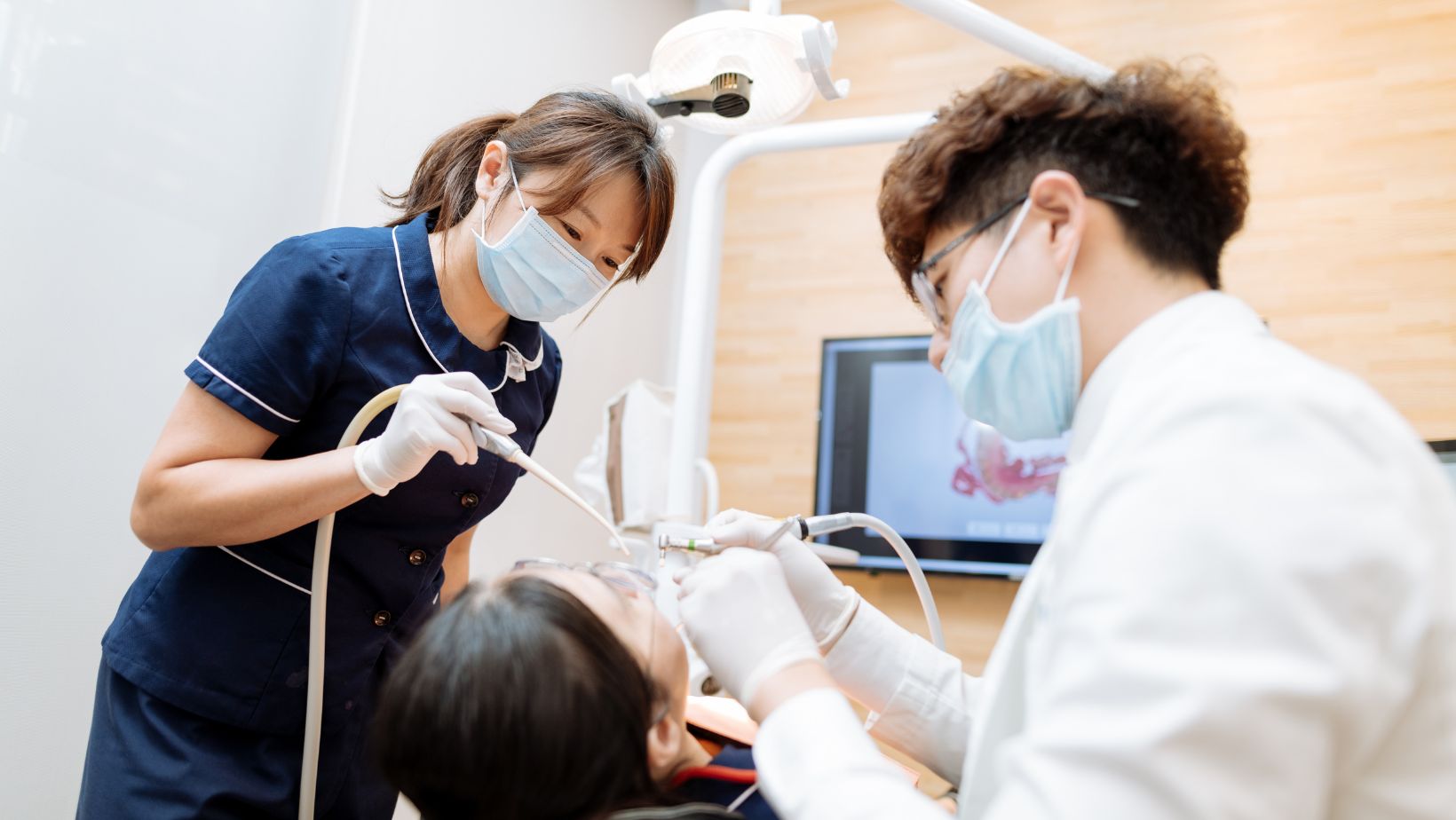Building a thriving dental practice hinges on having a strong, cohesive team working together seamlessly towards a single goal – providing the best oral care possible.
While your clinical skills are undoubtedly important, it’s your staff that keeps the practice running smoothly and ensures exceptional patient care. That said, hiring the right team is a critical component of your success.
This post explores key considerations for staffing your dental practice effectively. Read on.
Assessing Your Unique Staffing Needs
Before embarking on the hiring process, take a step back and evaluate your practice’s specific staffing requirements. Consider factors such as patient volume, the scope of services you offer, operating hours, and your plans for future growth. Then, make a detailed list of the roles you need to fill, which may include dental hygienists, assistants, an office manager, receptionists, and more.
Having a clear picture of your ideal team structure will serve as a roadmap for your hiring decisions.
Identifying Essential Staffing Qualifications
While every position in your practice plays a crucial role, some roles require more rigorous qualifications than others. That said, clearly outline the essential requirements for each position. This might include education and training from reputable organizations like medicalaid.org, licensure and certifications, relevant dental experience, and proficiency with specific dental software or equipment.
Keep in mind that while you can provide additional training to refine skills, certain baseline qualifications are necessary to ensure high-quality patient care and compliance with industry regulations from the get-go.
Looking Beyond Technical Skills
Although technical proficiency is essential, don’t underestimate the importance of soft skills when building your dream team.
Why? Your staff will be interacting with patients throughout the day, so it’s crucial to find candidates who possess excellent communication abilities, empathy, problem-solving skills, adaptability, and so on. Patients will remember how your team made them feel, so prioritize hiring individuals who can create a warm, welcoming atmosphere and build lasting patient relationships.
Asking The Right Questions
Once you’ve identified promising candidates, it’s time to conduct interviews. Prepare a comprehensive list of questions that delve into both technical knowledge and soft skills.

You can also incorporate scenario-based queries that touch on real-life clinical situations and practical oral health applications. This will give you valuable insights into how they would handle various challenges and interact with patients.
During the interviews, pay close attention to each candidate’s communication style, enthusiasm, professionalism, and alignment with your practice’s core values. However, remember that interviews are a two-way dialogue. So, encourage candidates to ask questions about your practice culture, expectations, and opportunities for growth. This exchange will help you gauge their fit within your team and their long-term potential.
Conducting Thorough Background Checks
Before extending any job offers, it’s imperative to thoroughly verify candidates’ references and credentials. Reach out to former employers, colleagues, and educational institutions to gain a well-rounded understanding of their work ethic, skills, and character. Confirm that all necessary licenses and certifications are current and in good standing, too.
While doing the diligence process may be time-consuming, it’s a critical step in ensuring you’re bringing trustworthy and qualified individuals into your practice.
Prioritizing Cultural Fit
Your dental practice has a unique culture shaped by your values, mission, and work style. That said, when hiring, look for candidates who align with these elements and demonstrate a genuine enthusiasm for being part of your team.
Remember: skills can be taught and refined, but attitude and personality are inherent qualities that significantly impact team dynamics. So, prioritize candidates who not only meet the necessary qualifications but also seamlessly fit into your practice’s culture. This will foster a positive work environment and contribute to long-term team success.
Investing In Continuous Growth And Development
Hiring the right team is just the beginning of your journey. To keep your practice thriving and adapt to the evolving dental landscape, prioritize ongoing staff training and development.

Provide opportunities for your team members to enhance their clinical skills, stay up-to-date with industry trends, improve communication and patient service, and cultivate leadership abilities. This commitment to continuous learning will not only elevate the quality of care you provide but also boost team morale and retention.
When your staff feels valued and supported in their professional growth, they’re more likely to remain dedicated to your practice for the long haul.
Fostering Open Communication And Feedback
Effective communication is the lifeblood of any successful team. As such, encourage open, honest dialogue among your staff and create channels for regular feedback. Schedule team meetings to discuss challenges, share successes, and brainstorm improvements. It also helps to implement a system for staff to provide suggestions and voice concerns anonymously.
By fostering a culture of transparency and active listening, you’ll create a supportive environment where your team feels heard, valued, and motivated to contribute their best.
Be A Good Example
As the leader of your dental practice, your actions and attitudes set the tone for your entire team. That said, demonstrate the qualities you seek in your staff – professionalism, empathy, integrity, and a commitment to excellence. Moreover, treat your team members with respect, acknowledge their contributions, and celebrate their successes.
Final Thoughts
Building an exceptional dental team requires careful consideration, effort, and ongoing investment.
By assessing your unique staffing needs, prioritizing essential qualifications, looking beyond technical skills, crafting thoughtful interview questions, conducting thorough background checks, prioritizing cultural fit, investing in continuous growth and development, fostering open communication, and leading by example, you’ll create a strong foundation for your practice’s success.


